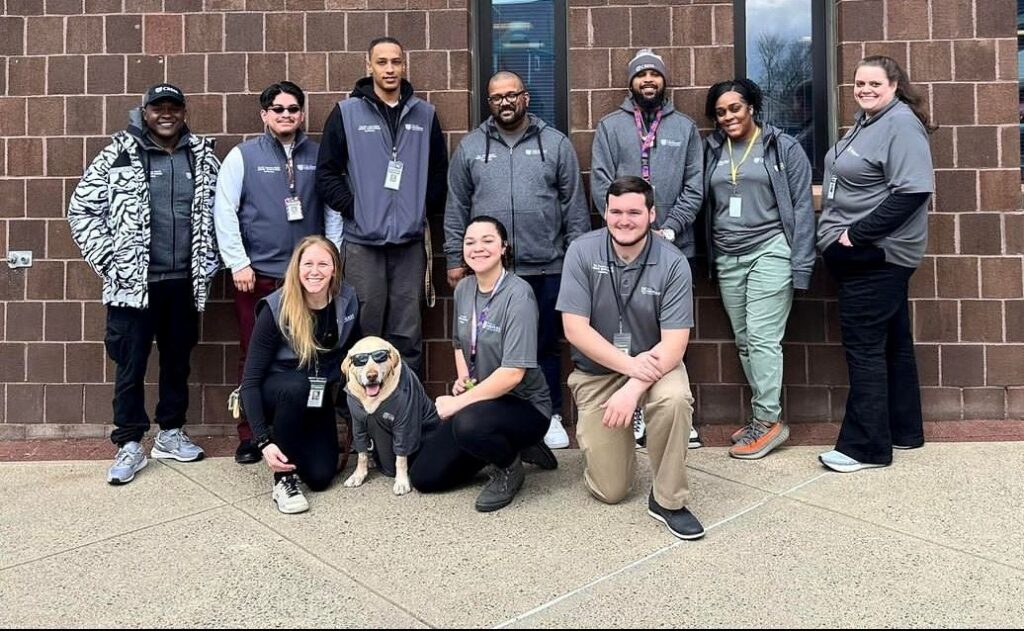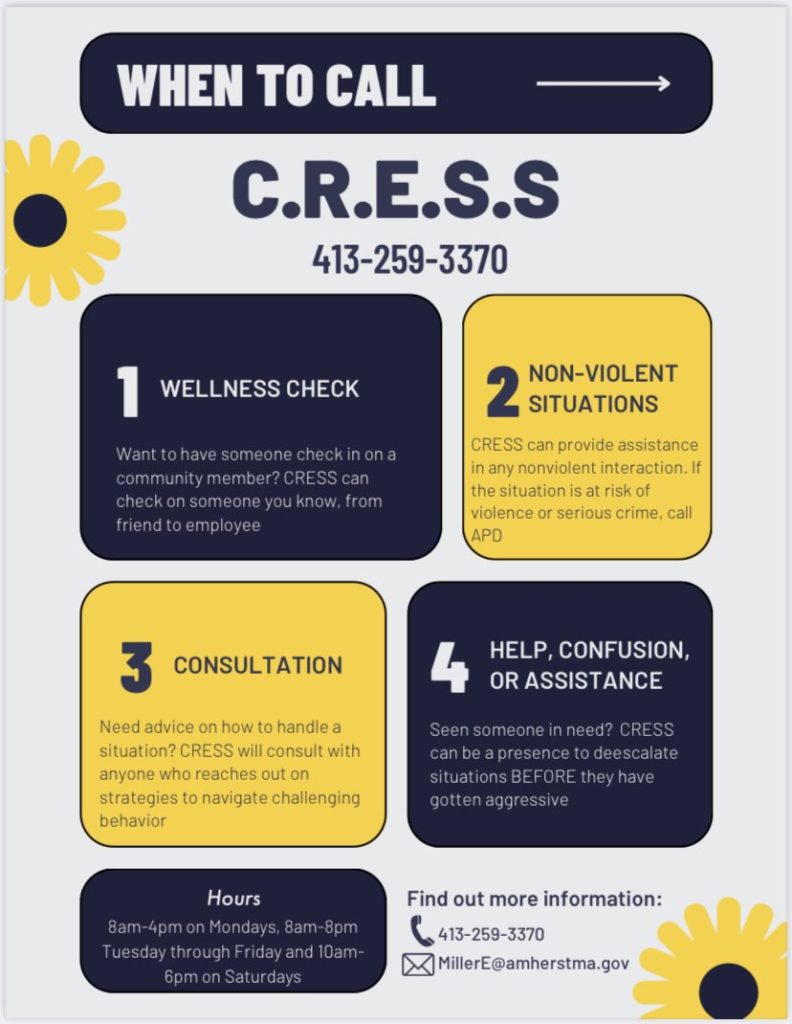Issues & Analyses: CRESS Re-envisions Public Safety In Amherst

Amherst's community responders. Photo: amherstma.gov
Amherst has been engaged in re-envisioning its public safety services since the summer of 2020, following the murder of George Floyd by the Minneapolis Police Department. Part of this re-envisioning has resulted in a new department, Community Responders for Equity, Safety and Service (CRESS), tasked with responding to non-violent calls in the community. However, the creation of a new department alone will not solve all issues related to community safety. As a community, we must consider what we define as a public safety threat and think creatively about solutions outside of the traditional punishment-and-coercion approach to which we are accustomed.
CRESS, envisioned by the Community Safety Working Group, was recommended as an alternative response to incidents that did not involve violence. Rooted in anti-racist practice, its mission is to provide interventions consensually and non-coercively. This type of work is deliberate, and significant time in each intervention can be spent developing trust and building relationships. This also means that CRESS responders will not force a person into an outcome, whether housing for someone staying outside or treatment for someone using substances. As community members, we must shift our expectations around “results”, even when making well-intentioned calls for emergency response.
What could this look like?
A person staying outside being given a blanket rather than being moved inside.
A person using substances being given safer supplies — drug testing kits, clean needles — rather than being taken to detox.
A person sitting in the garden behind the library being left to enjoy the day rather than being told to move.
Why is reframing important?
Many people have experienced harm at the hands of systems and may continue to distrust them. For example, people might have been physically or chemically restrained at a hospital due to experiencing mental health symptoms, causing them to avoid traditional mental health practitioners. People might have been turned away from a traditional shelter due to being under the influence of substances, causing them to stay on the streets. Many people experience shelters and hospital settings as triggering, whether due to loud environments or loss of control.
How do we get to non-coercive responses?
Harm reduction is a philosophy in public health meant to diminish potential negative consequences of a behavior to an individual and community. It centers the expertise of people with lived experience. While commonly attributed to substance use, it can be more widely applied. Some examples are masking in public during a pandemic, encouraging people who are around substance use to carry NARCAN, and distributing condoms to prevent disease transmission or unintended pregnancy.
Motivational interviewing explores ambivalence to and motivation for change. It does so through a collaborative process with an individual, creating an environment where change is a possibility. The person is seen as the expert of the situation, and therefore solutions are elicited from them through questioning and reflecting, rather than addressed through advice. Ultimately, responsibility for change is up to the person. This philosophy of being with another is the underpinning for CRESS’s interactions.
What has this looked like in practice?
Earl Miller, CRESS director, shared the following example of a recent intervention. “A parent was struggling to deal with the behavior of an elementary aged child. She came to our office after she felt like she was at her wit’s end. We supported her to apply for state services, and a [CRESS] responder is planning to provide some mentoring to the youth. Without the availability of CRESS, her only other option was to wait until the behavior had become severe enough to warrant a 911 call and police intervention. Motivational Interviewing is being used to support her to make decisions that she believes will allow her to find more solid ground and to feel like her concerns are heard and valued by the department.”
How do I access this service?
If you or someone you know could benefit from support or intervention during a non-violent incident, you can call CRESS directly at 413-259-3370. CRESS is also available for consultation and services proactively, before a situation escalates to a crisis. CRESS will not engage in an intervention to which the person does not consent.
View More: Community Safety And Social Justice Committee Public Listening Session, March 25, 2023

